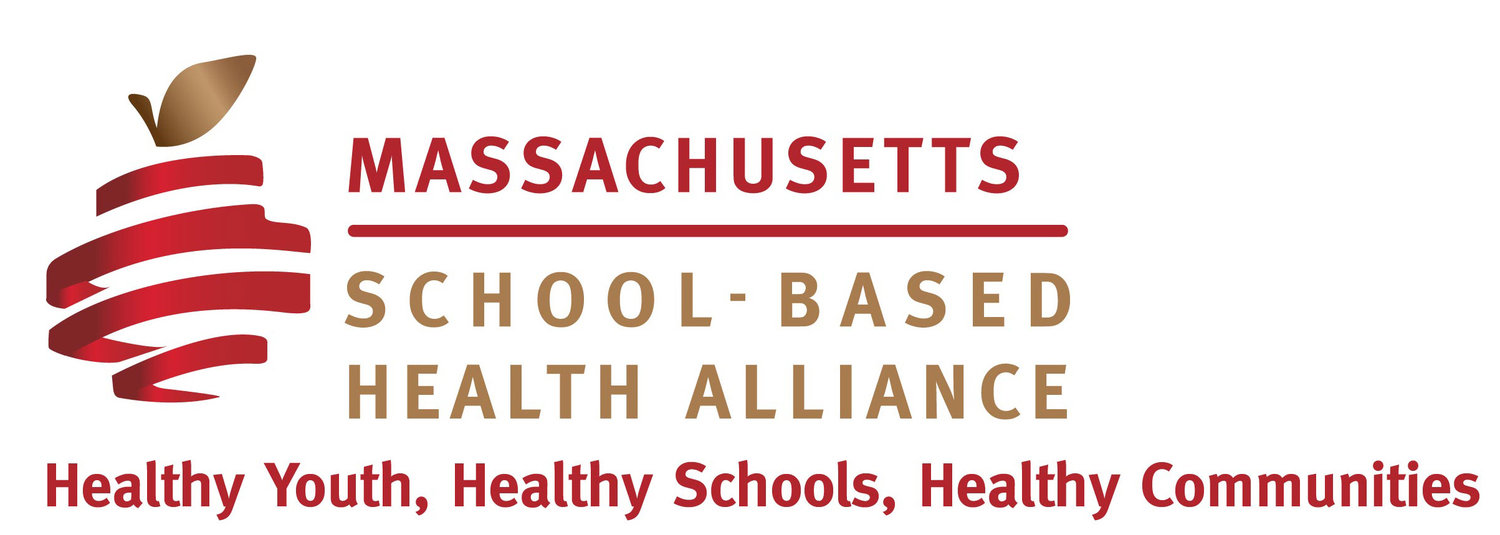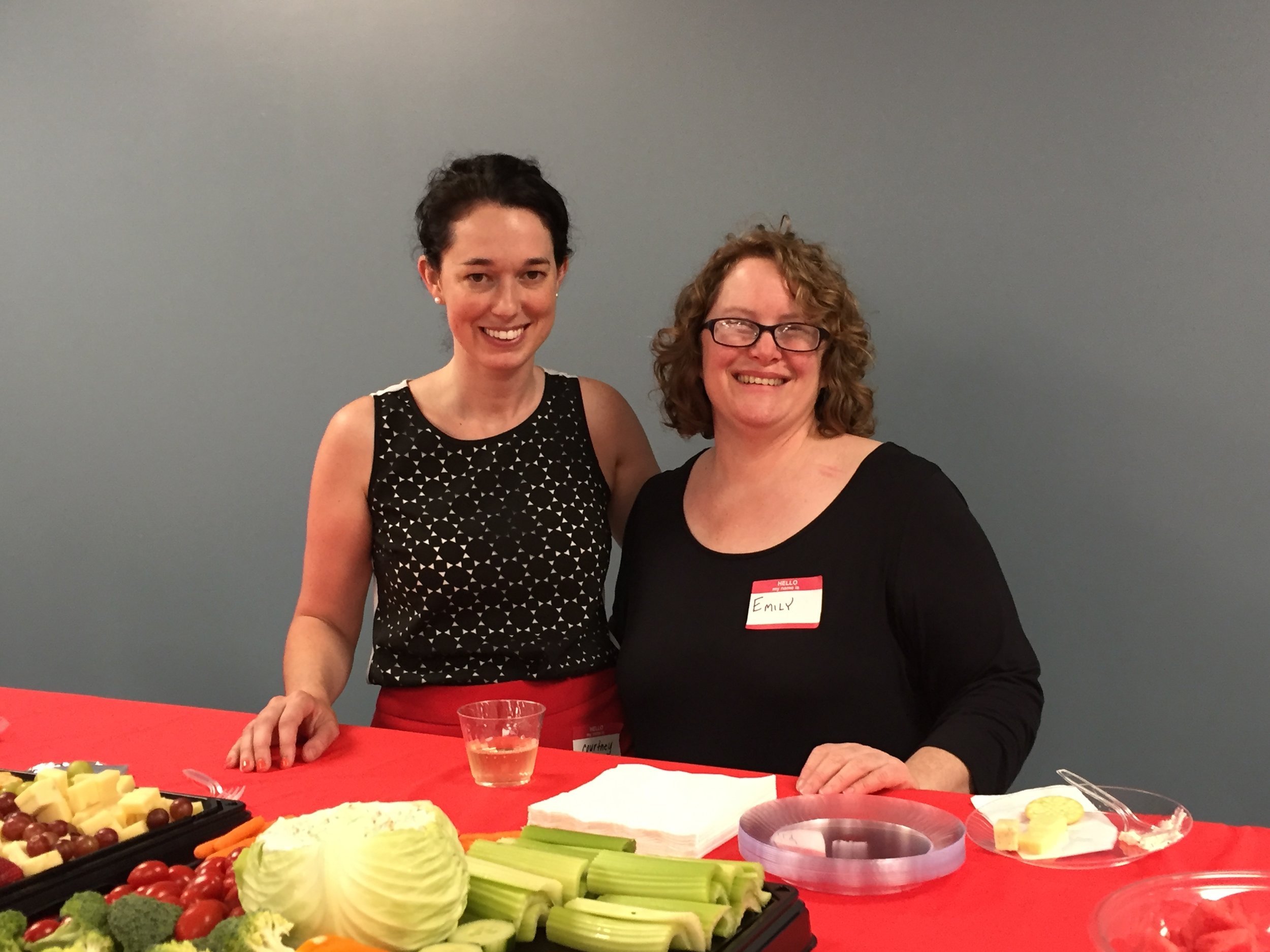CELEBRATING COLLABORATION AND COLLECTIVE WISDOM AT THE MA SBHA WORCESTER WORLD CAFÉ
By Kathleen Meagher, Psy D
Our first Worcester event
Many thanks to all who joined us for the MA SBHA Worcester World Café on Thursday, 5/31/18 at the newly opened Massachusetts League of Community Health Centers Training Center in Worcester. (A special thank you also goes out to Robert ‘Bob’ Spillane, Vice President of Business Development at the MA League of Community Health Centers, for providing such a welcoming and functional space to hold this 2nd MA SBHA World Café event, insuring we had everything we needed for meaningful, passionate conversations about school-based health care: all the way from the choice of space, tables, chairs, kitchen, and technology – to the inclusion of Miles Davis as background music – Thank you!)
To continue the conversations started in the 1st World Café at MGH in Boston, and to insure that the voices of SBHC professionals and partners from all communities across Massachusetts are heard, this Worcester-based Café was fortunate to have a mix of representatives from Greater Worcester, Lowell, Holyoke, Boston, Lynn, and several other regions – as well as welcome representation from Worcester’s educational community collaborating on Worcester’s efforts to implement ‘best practices’ in addressing the state’s Social-Emotional-Learning and Health/Wellness initiatives.
This World Café focused on continuing the conversation regarding best strategies for advancing the mission and vision of the MA SBHA, gathering feedback to guide planning, current and future initiatives, and meaningful events on both statewide and regional levels, while providing a unique opportunity for all to share the collective wisdom, passion, best practices, and expertise of SBHC professionals and community/education partners working together. The guiding questions and responses from this World Café are listed below – in no particular order – and this dedicated group of professionals is hopeful that these will help to guide next steps in building a unified and mission-driven MA SBHA. Many thanks to all for participating!
“What do you hope membership in the MA SBHA will do for you and your SBHC community?”
Consider:
What will make membership meaningful, collegial, useful, memorable, important, influential? What do you believe the MA SBHA priorities should be? What are your thoughts on the mission, advocacy, best practices, collaborative partnerships, engaging others?
*Help with grant writing
*To learn best practices within the SBHC community
*Advocate to DPH to allow non-state funded centers to attend state-wide meetings
*Advocacy for reproductive health in this political era
*Start an annual conference
*Help us integrate and collaborate
*Go to the Children’s LEAH fellowship program to see if non-state funded programs can attend presentations
*An alternative to the DPH meetings that can include all SBHCs in the state – and – allows for networking
*Whole group discussion points:
*How to unify all SBHCs across the state – (currently an artificial split of ‘DPH’ and ‘non-DPH’) creating artificial barriers to networking opportunities, shared expertise
*Create a unifying organization
*Sharing best practices
*Finding grants and funding sources to close disparities in SBHC resources and services across various communities throughout the state
*Identifying/addressing unique community/cultural needs
*Share ‘Pilot’ initiatives within SBHCs – Nominate fellow colleagues/other SBHCs to share projects, initiatives we want to learn more about
*How to find time/define time necessary for true SBHC focus – (Address the ‘SBHC vs Clinic Hours’ Struggles in various sites)
*Help in using ACOs and ‘community-based initiatives’ – for ‘non-billables’ – how to define/pay for ‘extras’ that are actually necessary for student health/wellness and relationships within school.
*Shift from ‘administrative focus’ to a more ‘clinical/best practices’ when together
*Build relationships/networks
*Advocacy on political health/wellness issues
*Clinical conversations
*Help with fiscal issues
*Reproductive health discussions
*Substance use/abuse
*Family issues
*Knowledge of/Representation in statewide initiatives as a stakeholder, such as ‘Promote/Prevent’ Commission, etc.
*Focus on the mission and vision of the MA SBHA
“Share your best strategies for insuring the unique priorities, ideas, and expertise of SBHC providers from all regions across Massachusetts are actively integrated within the MA SBHA.”
Consider:
Preferred Communication Strategies
Gatherings and Events and Locations
Social Media – Technology – Networking
And???
*Collaborating with other SBHA chapters to advise on policy initiatives in MA
*Working through personal connections to get the word out about MA SBHA initiatives and events while it gets back off the ground
*A place/event to learn best practices for all operations (medical, administrative, billing, etc.)
*Opportunities for communication and connections
*Email updates re: optimizing on billing/revenue – especially in light of ACO/MH changes
*Invitation to DPH events and trainings
*MA SBHC conference
*Paid networking/collaboration events
*State funding helps insure SBHC sustainability
*Centralized data-base with contact information to be able to network with other SBHCs and SBHC providers
*Patient load expectations pertinent to each funding
*Use of ZOOM or other shared networking through technology, even if not ‘in-person’
How do you see SBHC professionals collaborating together to address MA DESE initiatives enhancing student learning and success?
Consider:
Student attendance and engagement: Health/Wellness initiatives
Special Education, 504s, ELL Programs, Homelessness Liaisons, Crisis Teams
Community and family involvement
Enhanced graduation and school completion rates
Social-Emotional Learning (SEL) and Trauma-Sensitive Schools
DESE Student Support Services
Future Ready, College and Career Readiness
Other DESE or local priorities in your districts?
*Clear understanding of DESE initiatives and practices in development to achieve these initiatives. Ensuring a bidirectional communication process that allows SBHC providers to continuously check in with experienced sources.
*Sharing initiatives ‘in context’ with each other – inviting each other to anything that seems relevant – Decreasing ‘silos’ and increasing collaboration
*Addressing struggles – data sharing in navigating HIPAA/FERPA* and contextualizing SBHC data – connect with academic data, including attendance and discipline.
*Using grants/funds from one program/institution to fund collaborative projects – ie – projects to improve student health/wellness – like: nutrition, how to plan/purchase food, exercise.
*Invite SBHC staff to school staff meetings, either to listen or present…and vice versa
*(Reproductive) Health and wellness services with education
*Collaborating to advocate for services for students
*Ensuring resources promised to students are acted upon.
*Mental health support and connection with psychiatric providers within the community – Flagged by SACs/NPs
*Supporting school/SBHC staff to manage the transition from middle to high school (Guidance Department, SBHC, Adjustment Counselors, Special Education, Teachers, Etc…) making sure students aren’t lost!
How do you see SBHC and school personnel most effectively working together to promote and implement shared initiatives of importance to local schools and communities?
Consider:
Social Emotional Learning (SEL)
Social Justice Initiatives
Learning and the Brain
Violence – Safety – Environmental Factors
Lifestyle Medicine – Healthy Habits – Health/Wellness
*Participating in school-wide SEL activities
*Restorative Justice activities
*Relationship-building between school employees, school nurses, and SBHC
employees
*Insuring SBHC providers and staff are considered part of the school community
*Time for SBHC staff to attend school meetings
*Building relationships with staff and leadership of schools.
*Referrals between the school health resources and school-based health center: navigating those complicated processes and relationships
*Learn – and – Listen from schools and community agencies
*Administrators to be invested
*Doing screenings/asking the questions in the SBHC setting that can give context to school responses/shared initiatives (ie: violence prevention)
*’Common time’ dedicated to conversation
What are the most challenging issues faced in your SBHC (clinical and/or logistical) – and your strategies, thoughts, recommendations for addressing them?
Consider:
Current use of successful strategies to share with colleagues, as well as potential ‘wish list’ advocacy possibilities addressing barriers to overall student health and well-being
*TIME! Having regular meetings with all SBHC providers to share best practices.
* Ditto – Time – need more time.
*Establishing a closer working relationship between IEP specialists and SBHC NPs re: serious medical issues that keep students home (“No tutor available”?? Against the law!!)
*Insurance reimbursement, confidential visits, STD testing without billing disclosure)
*Inability to freely/easily share data with the schools, ie: getting school data/attendance-schedules/etc…makes day-to-day work and larger collaborations more challenging
*Division of leadership roles can increase the man/woman power to tackle the diversity challenges that need resolution…”Divide and Conquer”
*How to train new staff effectively and quickly, so they can be effective in assisting the staff right away.
With unlimited resources, what would be the ideal SBHC role in your school and community?
Consider:
The Role of the SBHC in Collaborative Partnerships/ School Population vs Individual/ Which Partners Can Help Advance ‘Population Level’ Health and Wellness/ What is Necessary for Effective Change to Happen?
*Education – and – Good Communication
*Know when to refer to BHI/Counseling Services
*Know resources to refer to patients
*Good communication with school counselors/RN
*Care for the patient without worrying about insurance
*Provide alternative health options:
-Acupuncture
-Yoga
-Meditation
-Offer Reiki – Great for PTSD, panic
*Further extension of the ‘Medical Home’ PCP – being able to prescribe birth-control and EC.
*We would create an array of programs to engage kids in health-related activities: education – physical activities – nutrition
In what types of initiatives are Worcester’s teams of health providers, educators, specialists, community members, and students most successfully enhancing and promoting student health, learning, and well being?
Consider:
Current Successes and Challenges – Future Plans and Possibilities
Teams – Collaboration/Integration – MA SBHA
· Greater Worcester Community Health Improvement Plan (CHIP)
· ‘Access to care’ subcommittees / working group
· May be missing educators
· Strategic Plan
· Lots of community agencies doing this work
· With so many agencies – lacking effective interconnection
-Lack of centralized database to obtain the information of the agencies
that can aid our purpose
[The Greater Worcester Team is currently engaging in multiple health/ wellness initiatives – and members used the opportunity presented by the MA SBHA Worcester World Café to continue their conversation within the team and with other SBHC providers from around the state.)


